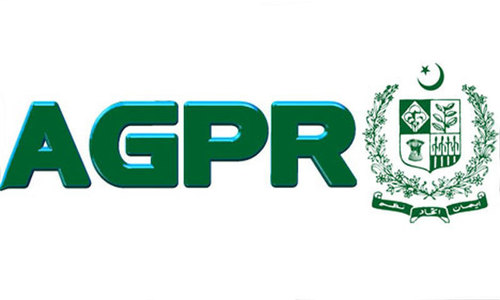ISLAMABAD: The circular debt of the power sector is continuing to rise despite a series of surcharges imposed on consumers and other measures taken to contain it under a three-year plan.
An official of the water and power ministry told Dawn that “under-budgeting of power sector subsidy by the finance ministry is emerging as a major stumbling block along with other structural rigidities in the system in controlling the circular debt”.
He said the government had allocated a subsidy of Rs98 billion in the 2015-16 budget compared to Rs221bn in 2014-15 “to artificially lower budget deficit at the cost of power sector’s financial stability”. This has been brought to the notice of the prime minister and the finance minister, he added.
The official said that subsidy actually being passed on by distribution companies (ex-Wapda Discos) to residential, agricultural, AJK and Fata consumers was more than Rs200 billion. “How can this be covered with a Rs98bn budget?” Because of this reason, the circular debt increased although it had been successfully capped in the first year (2015) due to “historical reduction of 5.8 per cent in aggregate technical and commercial (ATC) losses”.
A finance ministry spokesman did not agree. In a written reply, he said the government had carefully budgeted Rs118bn tariff differential subsidy (TDS) for the current year and referred to another Rs20bn subsidy earmarked for K-Electric and Rs98bn for Discos. He said the TDS for Discos had been worked out by calculating the difference between Nepra-determined tariff and effective consumer tariff and the number of units estimated to be sold during the year.
Similarly, the KE subsidy has been estimated after notifications by the government for the fiscal year and adjusting the consumer tariff in line with the power ministry’s notifications. “Once the quarterly notifications are applied, the subsidy is estimated to largely fall in line with the budget estimates,” he added.
Another official said that the circular debt capping plan was based on a number of assumptions and actions planned to be taken by various ministries, but fell as the low oil price bonanza set in. The government started keeping major part of the monthly fuel price adjustment against domestic consumers below 300 units per month as a windfall and did not focus on structural issues — low recoveries and high losses.
The major reduction of about 3pc in ATC losses was achieved because of relaxation by the power regulator to allow about 15pc losses in tariff against its previous benchmark of about 12pc, he said, adding that less than 1pc loss reduction was achieved by distribution companies through various measures.
Moreover, the federal government was expected to renegotiate an applicable tariff with Azad Kashmir and make some payments on behalf of the AJK government, besides facilitating recovery of electricity arrears from provincial governments.
This was also confirmed by the finance ministry spokesman. He said the “amount of circular debt build-up is related to a number of policy decisions to be implemented by the Ministry of Water and Power”. The subsidy of AJK, Fata and the amount based on the understanding that timely policy actions in all these areas will ensure that the budgeted amount is sufficient and does not result in the increase of the circular debt, he said.
At the same time, the performance of Discos has to be such that they adhere to the targets of T&D losses as set by the regulator, which is 15.3pc and recoveries are kept close to 100pc, he added. The finance ministry said the subsidy amount was the obligation of the government based on the differential tariff set as a policy and paid monthly as per claims received and “utmost effort is made to ensure that current year claims are met timely”. Nevertheless, “the government stands committed to meet the claims under this head, as it has done without fail and on time since it assumed office in June 2013”, it added.
Published in Dawn, March 21st, 2016













































